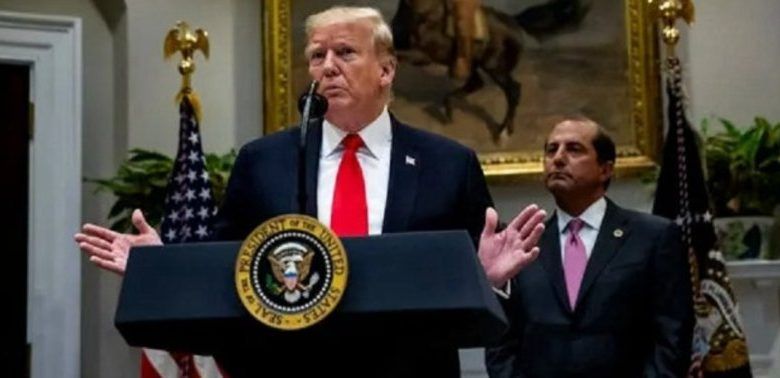Trump Sets February 1 Deadline for Tariffs on EU, China, Canada, Mexico over Trade, Fentanyl Crisis

Trump has warned of imposing tariffs on the EU, China, Canada, and Mexico by February 1, citing trade imbalances and the ongoing fentanyl crisis as reasons.
US President Donald Trump has renewed his threats to impose tariffs on the European Union and China, citing concerns over trade imbalances and the flow of fentanyl into the United States via Mexico and Canada.
Speaking to reporters at the White House, Trump says that his administration was considering a 10% punitive duty on Chinese imports and reaffirmed his long-standing position on the need for broader tariffs.
Trump’s comments came just a day after taking office without immediately implementing tariffs as promised during his campaign, temporarily easing market fears.
However, his renewed warnings reignited concerns over trade relations, with the president setting a new deadline of February 1 for imposing 25% tariffs on Canada and Mexico, alongside potential duties on China and the EU.
The 78-year-old argued that the proposed tariffs were necessary to address the US trade deficit and curb the influx of illicit drugs, particularly fentanyl and its precursor chemicals, which he claimed were being funneled through Canada and Mexico.
White House trade adviser Peter Navarro echoed Trump’s concerns, stating that the proposed tariffs were intended to pressure the US
“The reason why he’s considering 25, 25 and 10 (percent), or whatever it’s going to be, on Canada, Mexico, and China, is because 300 Americans die every day” from fentanyl overdoses, Navarro said.
In a broader effort to address these challenges, Trump announced a sweeping immigration crackdown on Monday, which includes a broad ban on asylum seekers.
Additionally, his administration is reviewing options to implement a “global supplemental tariff” and make changes to the $800 de minimis duty-free exemption for low-value shipments, which are often cited as a loophole for illicit fentanyl imports.
Despite the aggressive rhetoric, financial markets responded positively to Trump’s initially measured approach to tariffs, with the S&P 500 index reaching its highest level in a month. However, experts warned that further escalations could dampen investor confidence.
In response to Trump’s February 1 deadline, officials in Mexico and Canada took a conciliatory stance. Mexican President Claudia Sheinbaum emphasised her country’s commitment to sovereignty and independence, stating that Mexico would respond to the US
However, she made it clear that the US-Mexico-Canada Agreement (USMCA) would not be renegotiated before 2026.





